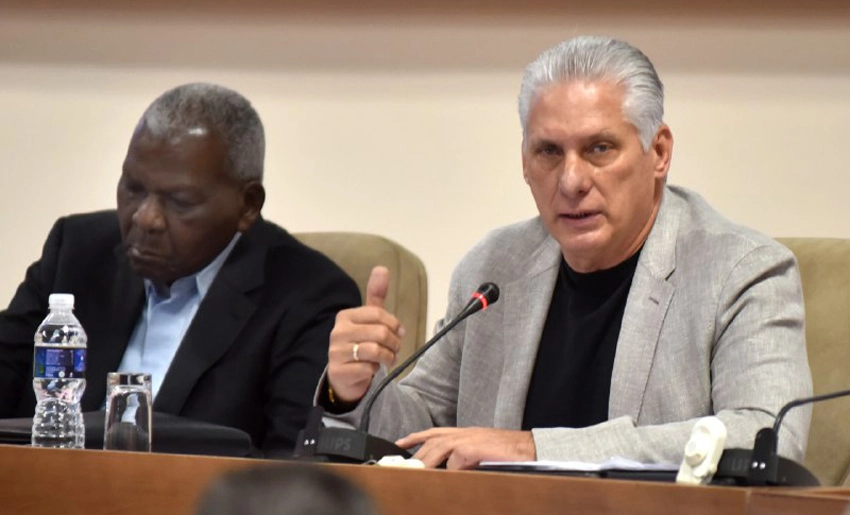President Miguel Díaz-Canel today underscored the commitment and contributions of Cuban economists and their crucial role in the sustainable development of the country, and of the social sciences in that field.
During a speech at the 9th Congress of the National Association of Economists and Accountants of Cuba (ANEC), which concluded today, the president stressed the importance of resilience and creativity in overcoming current economic challenges, with the support of the organization and its contribution with scientific rigor and professionalism.
He described as valuable the contributions made during the two days of debate and stressed that it has been a Congress in which resistance and creativity have been demonstrated: “Here there is no one defeated, here there is no one intimidated, here we are aware that we have to resist, but it is not resisting by holding on, it is resisting by moving forward,” he added.
Díaz-Canel emphasized that the documents discussed at the Congress adequately identify the structural problems of the Cuban economy and propose solutions, which he described as the best characterization of the distortions of the economy and its structural problems, a text that also includes work proposals.
It is necessary, he said, to strengthen ANEC, to involve its members in government decisions. In order to promote the development of socialism and economic sovereignty with unity and participation within the association.
He proposed that the Association define the three pillars promoted in the government’s administration: digital transformation, science and innovation, and communication.
Referring to the digital transformation of society, he remarked that it is a way to bring more productivity and better performance to all productive processes of economic and social services; scientific research must be translated into innovation to solve these problems, he added.
Another of the topics addressed by the president was the relevance of strengthening local productive systems. The participation of academia in territorial development, and the importance of fostering critical thinking from the political economy.
The President also highlighted the relevance of involving students in the economic and social processes of the country, links that will contribute to the integral formation of young people, and respond to the current demands of the environment.
Concluding his speech at the Congress, Diaz-Canel said that “more than anything else, it is a call to action, to how we combine the needs, the potential and also the time variable, which you have defined very well and how we have to print another pace for the solution”.
Translated by Aliani Rojas Fernandez
- Installation of Photovoltaic Systems in Rural Communities in Holguin - 19 de January de 2026
- 39th City Salon Opens in Holguin - 19 de January de 2026
- Habanos Festival Among Cuba’s Most Important Tourism Events - 19 de January de 2026

